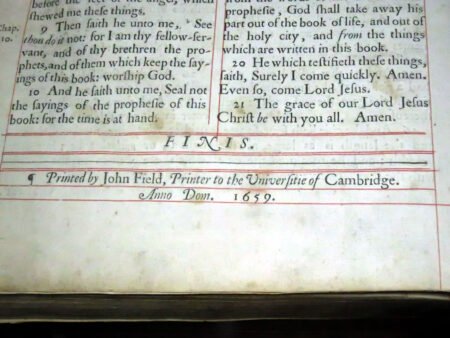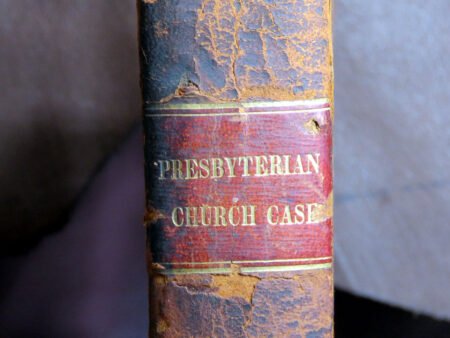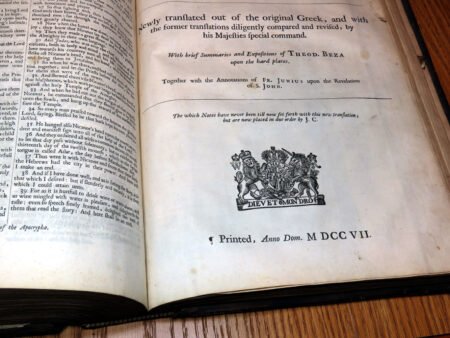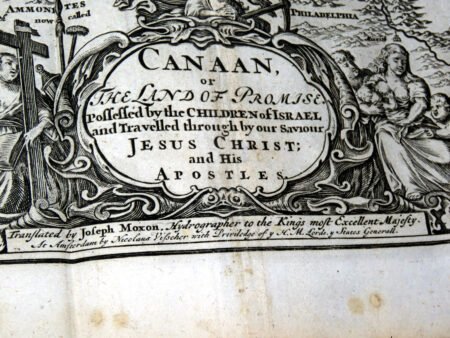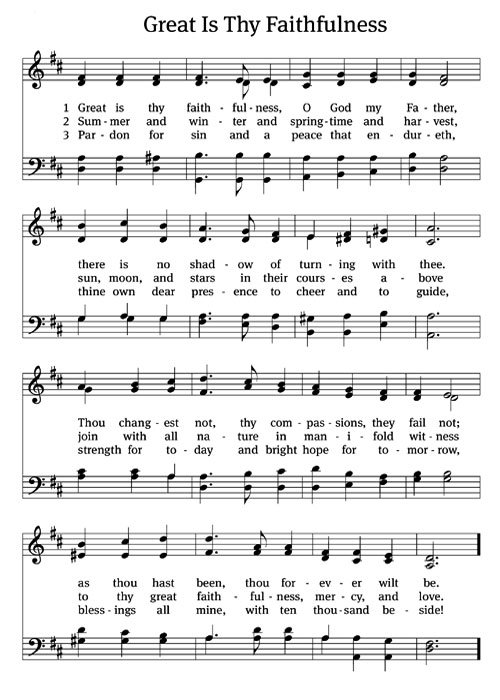King James I, also known as King James VI of Scotland, was the first monarch to rule both England and Scotland. He is a notable figure in history for his contributions to literature, his efforts to establish peace between Catholics and Protestants, and his impact on Christianity. He ruled from 1603 to 1625.
Accomplishments:

King James I is most known for his role in a translation of the Bible into English, which became known as the King James Version (KJV). He commissioned this translation in 1604, and it was completed in 1611. This version of the Bible became a widely accepted translation, and it remains one of the most widely read versions of the Bible today. It is considered one of the greatest works of English literature and has had a significant impact on the English language.
James was also a strong advocate of the arts and literature. He sponsored many artists, musicians, and writers during his reign, including William Shakespeare. James was himself a writer, and his most famous work is “Daemonologie,” a treatise on witchcraft and demons.
Another significant accomplishment of James was his efforts to bring peace to the ongoing religious conflict between Catholics and Protestants. He sought to establish a middle ground between the two sides, known as the “via media,” or the “middle way.” He also issued the Declaration of Sports in 1618, which allowed certain types of sports and games on Sundays, thereby reducing the religious tension caused by the Puritan Sabbath observance.
King James I was also known for his successful efforts to bring peace to the ongoing conflict between England and Scotland. He united the two countries under one monarch and established a more stable and unified government. He also oversaw the colonization of America, including the founding of the first permanent English settlement in Jamestown, which is in my home state, Virginia.
Faults:

Despite his accomplishments, King James I certainly was not without faults. He was known for his extravagance, which often led to financial difficulties for the kingdom. He also had a reputation for being indecisive and easily influenced by those around him.
King James I was also known for his belief in the divine right of kings, which meant that he believed that he had been chosen by God to rule over England and Scotland. This belief led him to clash with the English Parliament, which believed in the importance of limiting the power of the monarch.
James was also criticized for his treatment of religious minorities, particularly the Puritans. He believed in the divine right of kings and saw any challenge to his authority as a challenge to God’s will. As a result, he was often harsh with those who opposed him, and he saw the Puritans as a threat to his authority. He viewed their beliefs as extreme and believed that they were trying to undermine his rule.
King James despised the Geneva Bible, the Bible used by the Puritans, because he believed that the comments in the margin notes were seditious and did not show enough respect for kings. James’ new English translation was to have no commentary in the margins.
With the publication of the KJV in 1611, the Church of England had an “authorized” translation that it could use as its official version, and it began to discourage the use of other translations in public worship. As a result, these other translations lost much of their popularity and influence in England and elsewhere.
The KJV was Not the First English Translation.

Although some claim that the King James Bible was the initial English translation of the Scriptures, this statement is not true. In fact, John Wycliffe’s Bible was the first translation of the Latin Bible into English in the 1400s, and it was hand-copied. Before the KJV was published in 1611, several other English translations of the Bible existed. William Tyndale, for instance, printed his English translation of the Greek New Testament in 1526, almost a century before the KJV was available. The Coverdale Bible (1535), the Matthew Bible (1537), Richard Taverner’s Bible (1539), the Great Bible (1539), the Geneva Bible (1556), the Bishops’ Bible (1568), and the Douay Rheims Bible (1582) were all printed before the KJV.
Of these translations, the Coverdale Bible and the Matthew Bible relied heavily on Tyndale’s New Testament. The Great Bible (1539) was edited by Myles Coverdale, who also oversaw the production of the Coverdale Bible, and it was the first Bible authorized for public use by the Church of England. The Geneva Bible (1556) was published by Calvinist Puritans, and it became immensely popular among English-speaking Protestants. The Bishops’ Bible (1568) was developed by Church of England bishops as a response to the Geneva Bible. The Douay Rheims Bible (1582) was the first English translation of the Latin Vulgate, and it was intended for the Roman Catholic Church.
The KJV, which was published in 1611, incorporated many elements of earlier English translations, including Tyndale’s New Testament and the Bishop’s Bible. Therefore, while the KJV remains a significant translation of the Bible, it certainly was not the first English version.
View towards Protestants & Puritans:
King James I was raised as a Protestant and supported the Church of England. However, he also had a complex relationship with Protestantism and Puritanism. While he believed in the importance of religious unity, he was often critical of the Puritans’ desire to purify the Church of England and remove all traces of Catholicism.

One of the key issues that the Puritans raised was the need for greater simplicity and purity in the Church’s liturgy and practices. They objected to the use of certain vestments, such as the surplice and the cross, and to the use of organs and other musical instruments in worship services. They also criticized the practice of kneeling during the Communion service, which they saw as promoting a form of idolatry.
King James I had a complicated relationship with the Puritans. While he shared many of their religious beliefs, he saw their views as a threat to his authority. He also believed that their insistence on strict Sabbath observance and other religious practices was harmful to the kingdom’s economic well-being. While King James was sympathetic to some of the Puritans’ concerns, he also saw them as a threat to the stability of the Church and the monarchy.
Despite this, James did make a few concessions to the Puritans, such as allowing them to have their own preachers and providing them with some protection from the Anglican Church. However, he was still wary of their influence and did not hesitate to crack down on them when he felt they were getting out of line.
In response to the growing Puritan movement, King James I issued a series of proclamations and laws aimed at suppressing their activities. In 1604, he issued the Book of Sports, which encouraged people to engage in wholesome leisure activities on Sundays and criticized the Puritans for their strict observance of the Sabbath. He also authorized the use of a new version of the Thirty-Nine Articles, which reaffirmed the Church’s commitment to the monarchy and its rejection of radical Protestantism.
King James I also supported the imposition of stricter penalties for those who refused to conform to the Church’s practices, such as the use of the Book of Common Prayer. The infamous “Five Mile Act” of 1665, for example, prohibited non-conforming ministers from coming within five miles of any town or city.
Despite these efforts, the Puritan movement continued to grow in England and ultimately played a significant role in the events leading up to the English Civil War in the mid-17th century. Nonetheless, King James I’s treatment of the Puritans had a lasting impact on the development of Christianity in England, reinforcing the idea that religious dissent was a threat to political and social stability.
King James I was also known for his involvement in the Gunpowder Plot, a failed attempt by a group of Catholic extremists to assassinate him and other prominent Protestants in 1605. This event further heightened tensions between Catholics and Protestants during his reign.
Effect on Christianity:
King James I’s impact on Christianity is still felt today, primarily through his contribution to a translation of the Bible into English. The King James Version of the Bible is one of the most widely read translations in the world, and it has had a profound influence on the English language and literature.
James’ efforts to establish the “middle way” between Catholics and Protestants also had a significant impact on the development of Anglicanism, which remains one of the dominant Christian denominations in the world today. However, his treatment of religious minorities, particularly the Puritans, has been criticized as being too harsh and intolerant.
King James I’s commissioning of the King James Bible has had a lasting impact on Christianity. The translation of the Bible into English made it more accessible to the general population and helped to spread the Christian message.
The “Middle Way”

One of the defining features of King James I’s religious policy was his advocacy of the “middle way” approach to religious issues. The middle way was a compromise position that attempted to balance the competing demands of the Church of England’s various factions, particularly the Puritans and the more conservative Anglicans.
The middle way sought to find a compromise between the two sides by allowing certain aspects of Puritanism while retaining the essential elements of the Anglican Church. King James I believed that this approach would help to bring about religious unity in the country, which he saw as essential for maintaining political stability.
One of King James I’s efforts in this regard was the publication of the “Millenary Petition” in 1603, which was a document signed by around 1,000 Puritan ministers asking for certain reforms in the Church of England. King James I responded to the petition by convening the Hampton Court Conference in 1604, which brought together leading Anglican bishops and Puritan ministers to discuss the issues raised by the petition.
At the conference, King James I listened to the Puritans’ concerns and made some concessions to their demands, such as allowing for the translation of the Bible into English and the removal of certain Catholic elements from the Church’s liturgy. However, he also firmly rejected some of their more “radical” demands, such as the abolition of bishops.
Despite these efforts, the middle way approach was not entirely successful in achieving its goals of religious unity and stability. Many Puritans felt that the Anglican Church was not going far enough in its reforms, while many Anglicans believed that the Church was being too accommodating to the Puritans.
Nonetheless, King James I’s efforts in promoting the middle way approach to religious issues helped to shape the development of Christianity in England. His emphasis on compromise and moderation laid the foundation for the growth of a more tolerant and diverse religious landscape in England in the centuries that followed.
In conclusion
King James I was a complex figure in history, with both accomplishments and faults. His impact on Christianity, particularly through his contribution to a translation of the Bible, is significant, and his efforts to establish peace between Catholics and Protestants have had lasting effects. However, his treatment of religious minorities, particularly the Puritans, has been criticized as being too harsh and intolerant.

Comments closed




























